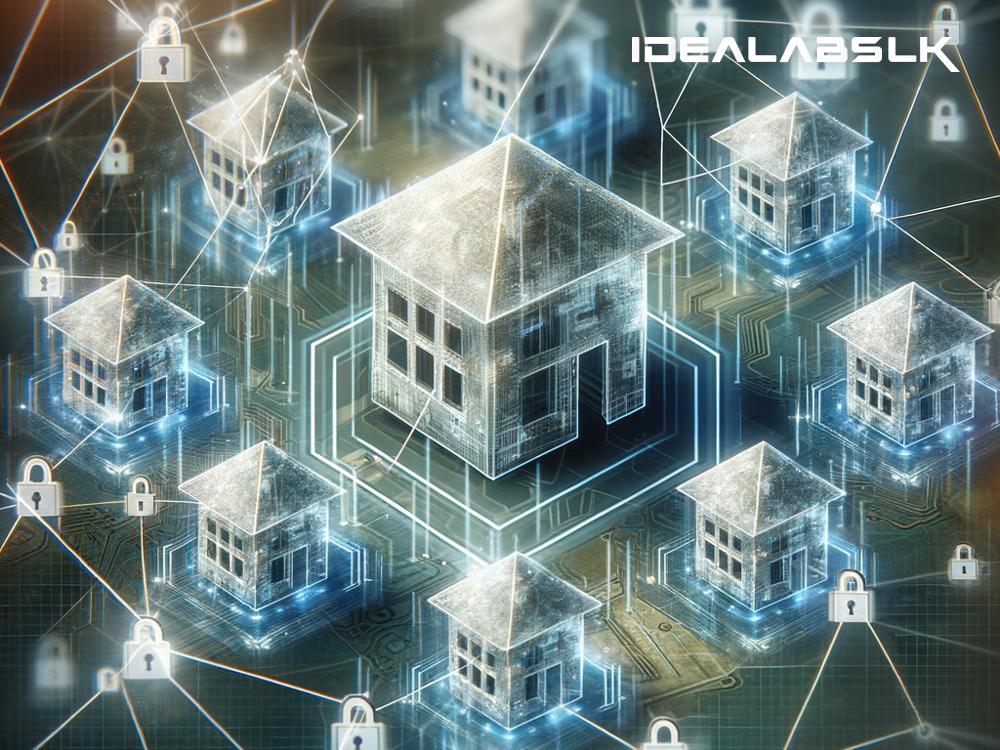Title: Making Property Investment Safer with Blockchain: A Simple Guide
Investing in property has always been appealing for those looking to secure their finances and possibly earn a good return. However, this form of investment comes with its own set of challenges: complex paperwork, risks of fraud, and sometimes a painfully slow process. But guess what? Blockchain technology, the same system that powers cryptocurrencies like Bitcoin, is stepping in to revolutionize how we invest in properties, making everything more secure and transparent.
Understanding Blockchain
Before we dive into how blockchain is revolutionizing property investment, let's break down what it is. Imagine a giant digital ledger that's accessible to everyone but controlled by no single user. This ledger records transactions across several computers in such a way that the registered transactions cannot be altered retroactively. This level of security and transparency is what makes blockchain a game-changer for various sectors, including real estate.
The Current Challenges in Property Investment
Traditionally, buying or investing in properties involves a lot of paperwork, middlemen, and, unfortunately, a significant risk of fraud. Verifying property ownership can be a nightmare, and the process of transferring ownership is not only slow but also expensive, thanks to the numerous fees involved.
How Blockchain is Making a Difference
Now, let's explore how blockchain technology is addressing these challenges head-on, creating a more secure and user-friendly investment environment.
1. Simplifying the Transaction Process
Blockchain simplifies the transaction process significantly by eliminating the need for many intermediaries such as lawyers and banks. Smart contracts, self-executing contracts with the terms of the agreement directly written into code, automate and secure the transaction process. This means faster transactions and reduced costs, making property investment more accessible to everyone.
2. Enhancing Security and Transparency
One of the biggest fears in property investment is the risk of fraud; fake listings and property title theft are real issues. Thanks to blockchain, every transaction and property detail is recorded on a tamper-proof digital ledger. This transparency ensures that investors can verify property ownership and transaction history easily, significantly reducing the risk of fraud.
3. Streamlining Property Management
Investing in properties isn’t just about buying; it also involves management, which can be quite tedious. Blockchain proposes a way to streamline property management through decentralized platforms, allowing for easier tenant screening, lease management, and even automated maintenance requests. All these interactions are securely recorded, making them easily verifiable and dispute-free.
4. Facilitating Fractional Ownership
For many, the high entry cost is a major barrier to property investment. Blockchain introduces the concept of fractional ownership, where you can own a portion of a property and enjoy proportional benefits. This division is made possible through tokens, representing shares of the property. This not only lowers the barrier to entry but also opens up new investment opportunities by allowing investors to diversify their portfolios easily.
Real-World Application
So how is this all coming together in the real world? Companies and platforms are already emerging, leveraging blockchain to offer these secure and efficient property investment services. For example, some platforms enable investors to buy tokens of a property and earn returns based on its performance, all backed by the security and transparency of blockchain.
Moreover, various governments and real estate bodies are exploring blockchain to manage land registries and title transfers. Though still in its infancy, the potential impact on making property ownership more secure and accessible is undeniable.
The Road Ahead
While the application of blockchain in property investment is growing, it's not without challenges. Regulatory hurdles, technology adoption, and market acceptance are significant barriers. However, the benefits it promises—reduced costs, increased security, and improved efficiency—are driving rapid innovation and adoption.
Conclusion
Blockchain technology is set to revolutionize the property investment landscape by making it more secure, transparent, and accessible. By simplifying transactions, enhancing security, and facilitating new forms of investment like fractional ownership, blockchain is not only addressing the current pain points but also opening up new opportunities. As this technology continues to evolve and integrate into the real estate sector, the future of property investment looks brighter—and much more secure—than ever.
The journey of integrating blockchain into property investment is still ongoing, but the strides made so far are promising. Whether you're a seasoned investor or considering your first property investment, keeping an eye on how blockchain continues to transform this space could be your key to more secure and fruitful investment opportunities.

